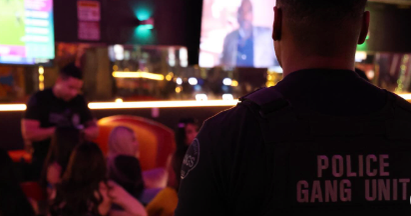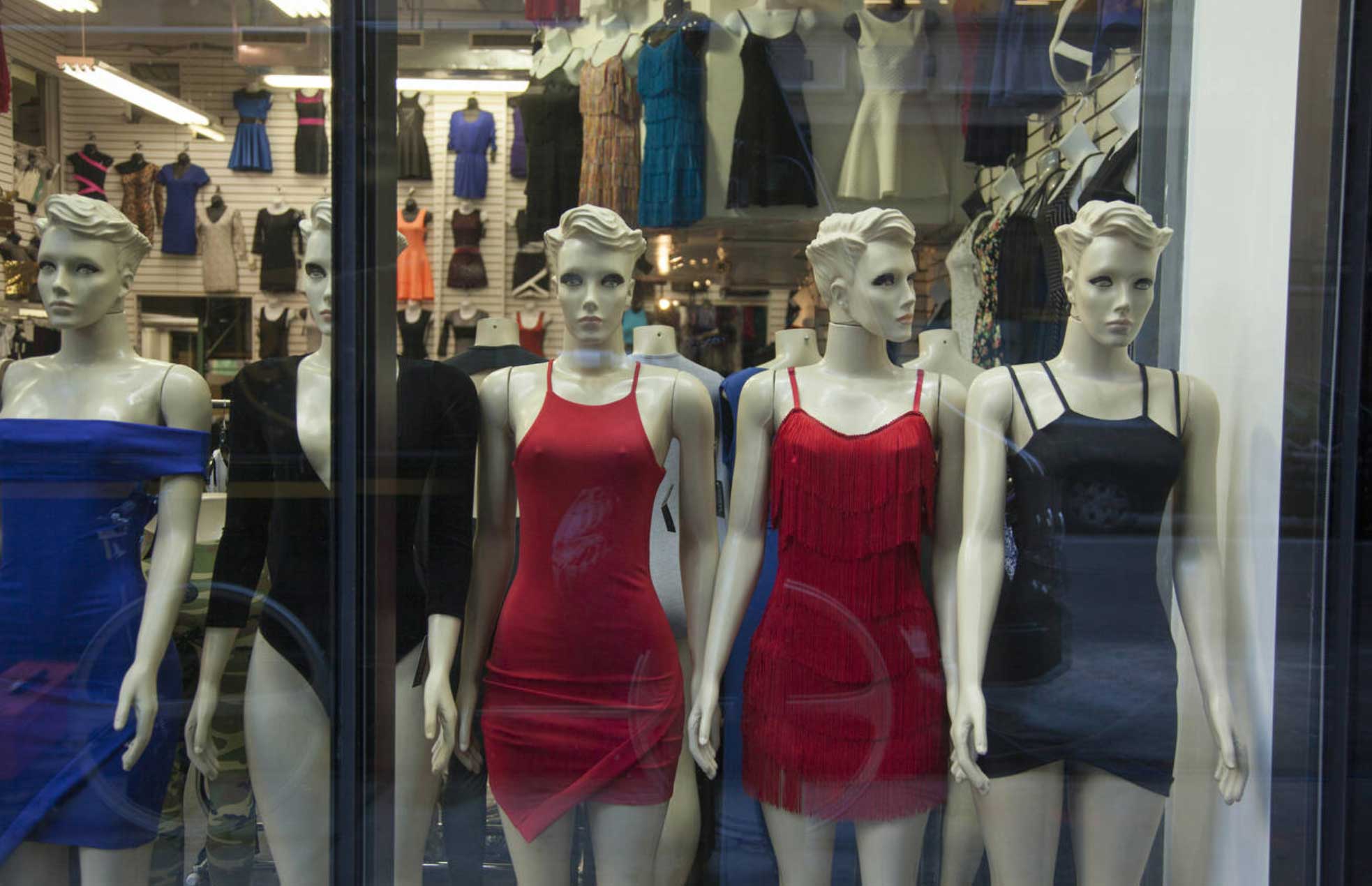Garment workers in Los Angeles describe the "modern-day slavery" of sweatshops: "They paid us like 5 and 6 cents for a piece."
Sweatshops are known for producing clothing items in unsafe working conditions where workers toil for pennies. They are commonly found overseas, but some exist in the United States — including in Los Angeles, California.
A 2016 U.S. Department of Labor investigation found pay violations in 85% of the L.A. garment shops it looked into.
Many of the factories produce garments known as "fast fashion" — trendy items commonly promoted on social media.
But behind the glam of many brands is a chain that leads back to L.A.'s old warehouses. The supply chain from fashion brands to workers includes many layers, including contractors and subcontractors, garment shops and factories.
Francisco Tzul has spent nearly 30 years sewing in garment factories in Guatemala, Mexico and the U.S. He said he often experienced hot conditions while working in the factories due to the lack of air conditioning.
Over the years, Tzul has documented many problems in L.A.'s garment industry. In a video he took, cockroaches can be seen running rampant through one facility.
"There is some kind of a modern slavery going on the sweatshops," Tzul tod CBS News consumer investigative national correspondent Anna Werner.
Workers in those shops earn money on a system called a "piece rate": They're paid for each seam they sew, each sleeve they make, each piece they complete.
"They paid us like 5 cents, 6 cents for a piece," said Tzul.
According to Marissa Nuncio, director of the advocacy group the Garment Worker Center, as a result, workers' average hourly wage last year ranged from $5.85 to as low as $2.68.
"At those low rates, they can never reach the minimum wage. It's just it's impossible. Even the most seasoned, skilled workers cannot sew fast enough," Nuncio said.
At that rate, to make the L.A. minimum wage of $15 an hour, a worker paid 5 cents per piece would have to sew 300 pieces in an hour.
"It's very difficult," a worker named Virgilda told CBS News. She only wanted to be identified by her first name because she fears retaliation. She has worked in the garment shops for over 20 years but says she still earns less than $5 an hour.
"If you ask for a pay raise, they say 'If you want to work, then work, if not, there's the door,'" she said.
CBS News went with Tzul to a building where he used to work, visiting a different factory. Inside there was no air conditioning as workers sewed or trimmed stacks of inexpensive-looking clothes.
"How much would someone get paid to make that?" Werner asked shop owner Valentine Carbajal.
"The company pay me maybe around $7.50, $7.75," Carbajal replied.
"So the company pays you around $7.50 for this garment," Werner followed up.
"Yeah," Carbajal said.
Carbajal told CBS News with brands paying so little for the garments, he can't afford to pay his workers much and some weeks can't afford to pay them at all. One employee told Werner she makes $200 a week. The 2016 Department of Labor investigation found that contractors — or middlemen like Carbajal — in the fashion garment manufacturing industry supply chain were paid only 73% of what they would need in order to pay their workers minimum wage.
That's why last month, Tzul and other garment workers rallied in California's capitol to push legislation to make brand-name clothing companies who control pricing — not just the subcontractors — subject to increased liability if workers aren't paid what they're owed. State Senator Maria Elena Durazo sponsored the bill.
"We have to make sure that they are fully responsible for what the workers who produce their garments are getting paid," she said.
But many brands have fought the bill, saying they do follow the law and shouldn't be liable for illegal operators who don't.
"Let me ask you a question that should be asked of these factories: If they cannot do it legally and legitimately, why do they even take the order?" said Ilse Metchek from the California Fashion Association.
Most of the brands CBS News contacted said they insist that workers be paid at least minimum wage. But what they said isn't enough for Tzul. He wants the brand names held legally responsible.
The California Chamber of Commerce opposed this legislation, calling it a "job killer." It said some employers may choose to move out of state to avoid those liability provisions.
California Governor Gavin Newsom's office would not say whether he intends to sign the bill.
But there's good news for Tzul — with the help of the Garment Worker Center, he got a new job, where he's now making minimum wage for the first time in 30 years.



